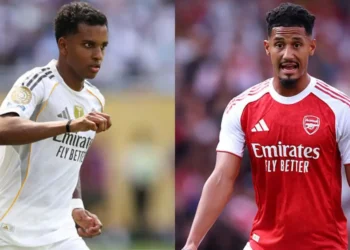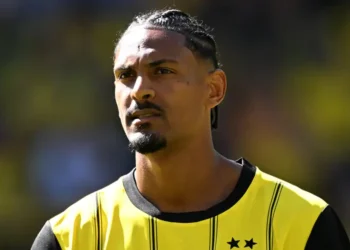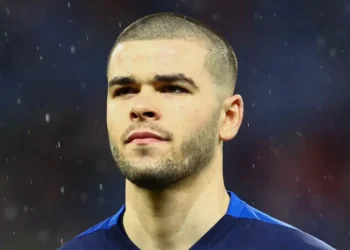Sadio Mane, the Senegalese football icon and former Liverpool star, has found himself at the center of a major controversy after reportedly requesting to be excused from an upcoming international fixture against England. The request, which shocked both fans and pundits, was swiftly met with a bombshell decision from the Senegalese Football Federation (FSF), one that could have significant implications for the remainder of his international career.
Mane’s Request: A Personal or Tactical Move?
The fixture in question—an eagerly anticipated friendly between Senegal and England—was seen as an important test for Aliou Cissé’s squad ahead of their upcoming international commitments. For England, it was a chance to face one of Africa’s most formidable sides, while for Senegal, it was an opportunity to pit their talent against one of Europe’s traditional powerhouses.
However, in a surprising turn of events, Sadio Mane reportedly approached Senegal’s coaching staff to request a leave of absence from the match. While the exact reason behind Mane’s request has not been officially confirmed, sources close to the player suggest it may have been due to fitness management, family commitments, or potentially club-related obligations. Given Mane’s history of professionalism and his deeply rooted patriotism, the request raised eyebrows among national team officials and fans alike.
The Bombshell Response
Rather than quietly granting Mane’s request or negotiating a compromise, the FSF responded with an unexpected and severe decision: Mane was dropped not only from the England fixture but also from the squad for the entire international window. This means that Mane will miss multiple matches, including key friendlies or qualifiers that could shape Senegal’s path to future tournaments.
The FSF’s rationale for the move, according to reports, centers around the importance of unity, commitment, and setting a precedent for all players—regardless of their stature. By taking such a hardline stance, the federation appears intent on reinforcing a culture of discipline within the team, even if it means sidelining its most high-profile star.
Reactions from Fans and Analysts
The reaction from the football world has been mixed. On social media, many Senegalese fans expressed disappointment, not just at Mane’s absence but at what some perceive as a heavy-handed response from the FSF. “He’s done more for Senegalese football than anyone in the modern era,” one fan wrote on X (formerly Twitter). “This feels like punishment, not professionalism.”
Others, however, supported the federation’s decision, pointing to the need for consistency and commitment across the squad. “If one player starts picking and choosing fixtures, it sets a dangerous precedent,” noted former Senegal international Habib Beye on a local sports program. “The FSF had to take a stand.”
From England’s perspective, Mane’s absence is seen as a blow to the spectacle of the match. Fans and pundits were eager to see how Gareth Southgate’s side would cope with the threat posed by Mane’s pace, intelligence, and goal-scoring prowess. The fixture will still serve as a valuable test for both teams, but the absence of Senegal’s talismanic forward undoubtedly diminishes the excitement to some degree.
Club Implications and Career Context
Mane’s club situation may also have played a role. After a turbulent time at Bayern Munich, Mane made a move to Al-Nassr in the Saudi Pro League, where he has been regaining form and confidence. The rigorous travel demands of international duty—especially when juxtaposed with a congested club calendar—may have led to a preference for rest or recovery.
Some commentators believe Mane’s request was a strategic attempt to extend his career longevity by managing his workload. At 33, Mane is no longer in his physical prime, and players at this stage often begin to prioritize certain competitions over others. However, the manner in which the FSF handled the situation suggests they expect full commitment from players regardless of age or club status.
What’s Next for Mane?
The bigger question now is what this incident means for Mane’s future with the Senegalese national team. Will this be a one-off disciplinary action, or is it the beginning of a more permanent rift? Mane has always spoken passionately about his love for Senegal and was instrumental in their Africa Cup of Nations victory in 2022. It seems unlikely that he would walk away from the national team entirely over one disagreement—but the fallout could strain his relationship with the federation going forward.
In the coming days, statements from Mane and the FSF will likely provide more clarity. Until then, the decision remains a headline-making controversy that has sent shockwaves through African football and cast a shadow over one of the summer’s
most highly anticipated fixtures.











